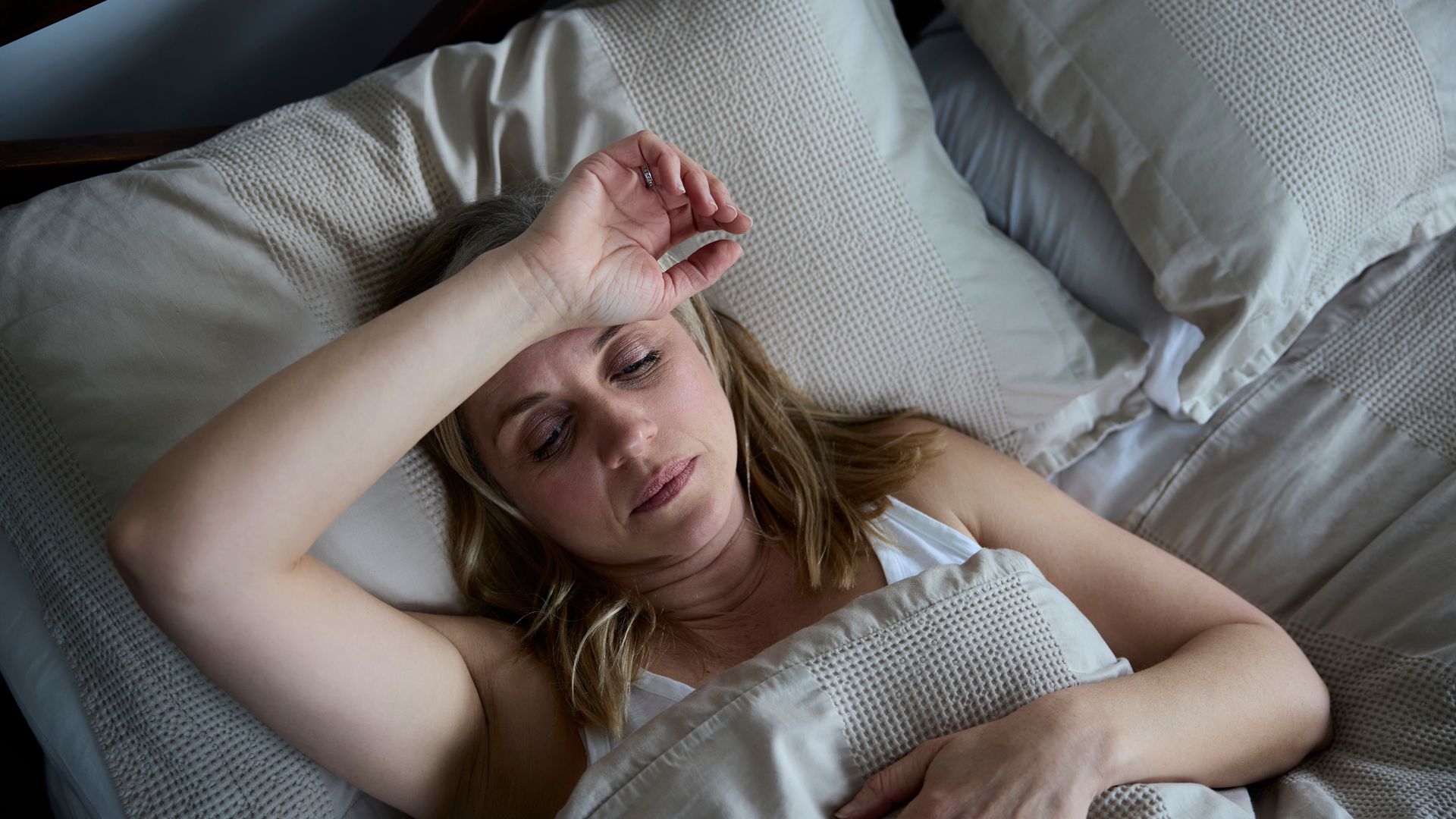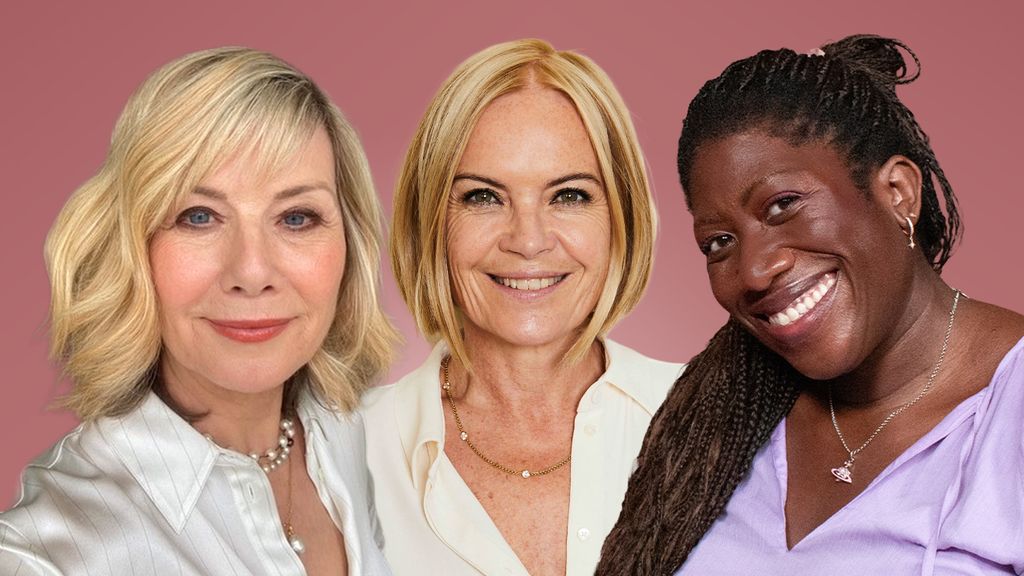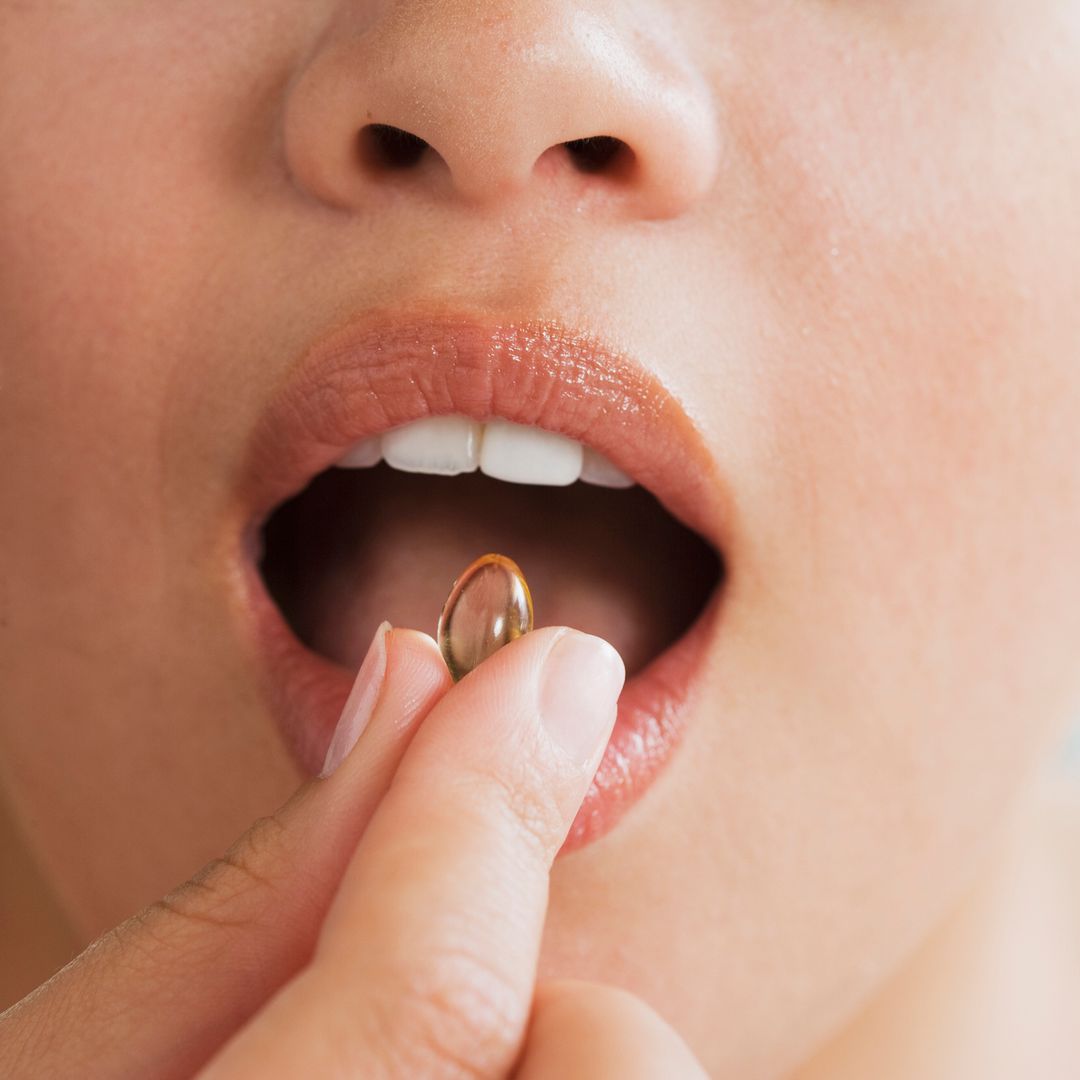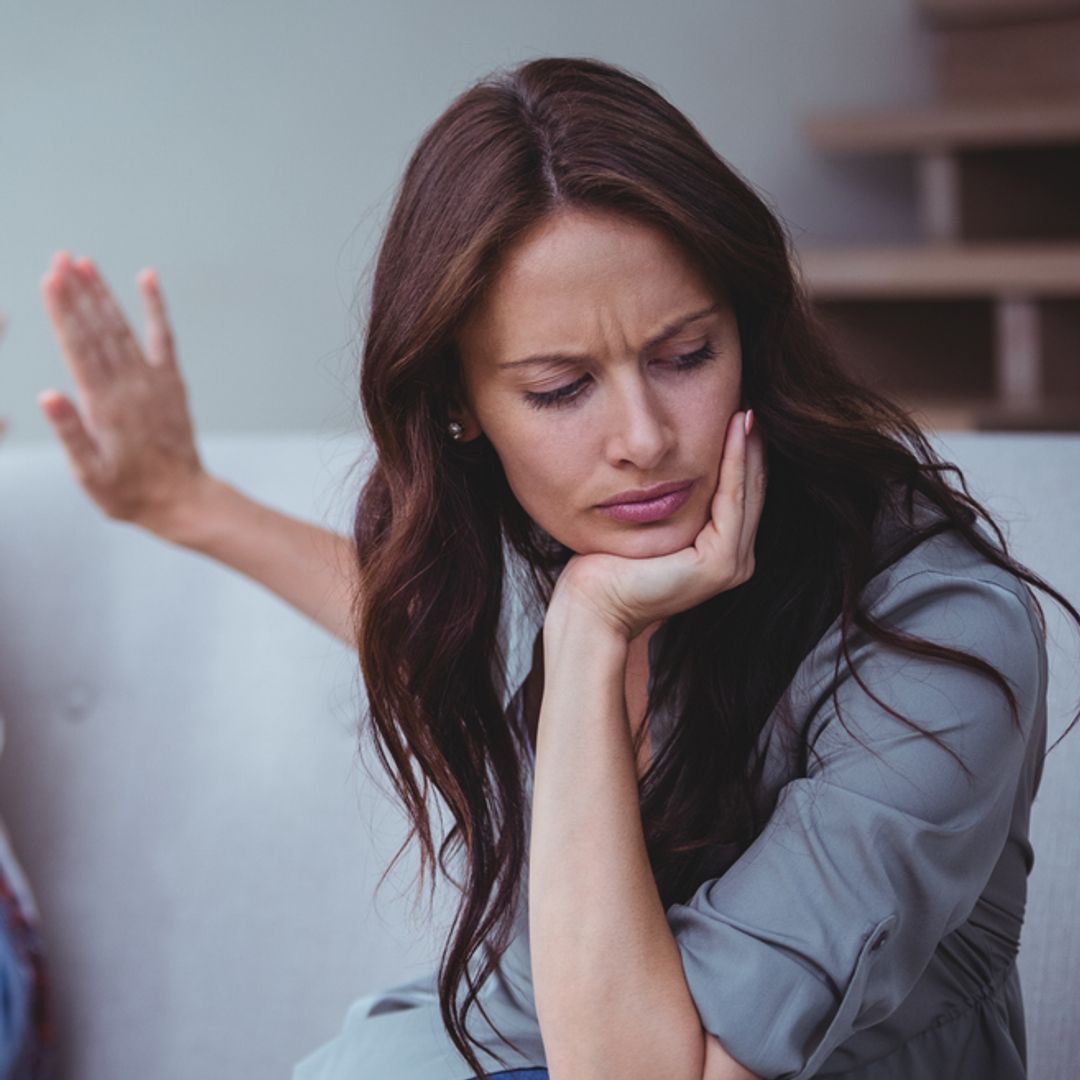Do you find yourself waking up at 3am, hot, sweating, restless and anxious with a complete inability to get back to sleep? If the answer is yes, you could be perimenopausal. And you are definitely not alone!
"There are more than 100 symptoms of perimenopause and sleep is one of the most important factors," Dr. Sara Szal Gottfried, hormone expert and bestselling author of The Hormone Cure, explained to HELLO!
"Women have double the rate of insomnia, much of it starts in perimenopause, and often they are not aware of it. They know they're waking up more, and they're not feeling as restored when they wake up, but they don't understand that their deep sleep is decreased, or that their awakenings are higher."
Oura, the sleep tracker ring Jennifer Aniston says that she is "addicted" to, recently monitored the sleep of 100,000 women for a year and discovered that more than half of them experienced sleep disturbances thanks to perimenopausal hot flashes.
Hormones and sleep
Oura's study recorded that the hot flashes lasted anywhere from 30 seconds to 10 minutes, which meant that some women were missing up to two hours of sleep each week. This is bad news if you're perimenopausal as it can exacerbate your existing mental and physical symptoms.
"One night of bad sleep leads to higher cortisol the next day," explains Dr. Szal Gottfried, who is on Oura's advisory board, explains. "It leads to irritability, which is one of the most common symptoms of perimenopause. It leads to higher insulin, so you tend to crave more sweets. It can make your cells numb to insulin, which sets you up for pre-diabetes, high blood pressure and damage to your blood vessels.”
Progesterone and sleep
Fluctuating hormones, particularly the loss of progesterone, are to blame for these middle-of-the-night wake-up calls. "Ovaries are starting to splutter; your eggs are starting to be impaired," Dr. Szal Gottfried explains. "You don't have as many eggs producing a normal amount of progesterone, and then the second half of perimenopause is when estrogen starts to decline."
There are ways to top up your progesterone levels without having to reach for hormone therapy. Dr Szal Gottfried suggests eating three to four hours before bed so that you have digestive rest and you're not busy trying to digest while you're sleeping. She adds that increasing your vitamin C intake is crucial.
Vitamin C in perimenopause
"750 milligrams [of vitamin C] raises your progesterone level. That's critical," Dr. Szal Gottfried explains. "It's hard to get it from food, so most people need to take a supplement. Herbal therapy Vitex has been shown to raise progesterone, too."
Cutting out caffeine and alcohol is also important. "We know that after 40 alcohol can wreck your sleep and also affect heart rate variability, and that can go on for several days."
RELATED: I wouldn't have known I was perimenopausal if I hadn't quit drinking
"Heart rate variability is the time between each of your heartbeats and that variability is a sign of health," Dr. Szal Gottfried explains. "Low heart rate variability is linked to burnout, feeling more tired, struggling to relax and recover from the stresses of your day," she adds.
Lifestyle changes
Whichever route you take to improve your health, Dr. Szal Gottfried is clear about one thing: taking control of your sleep routine and knowing how much sleep you are getting is crucial for optimizing your overall wellbeing and health, particularly during perimenopause.
"Sleep is a critical amplifier for the rest of your hormones. If your sleep starts to be less than what your body needs you're more likely to fall down a hormonal flight of stairs."












